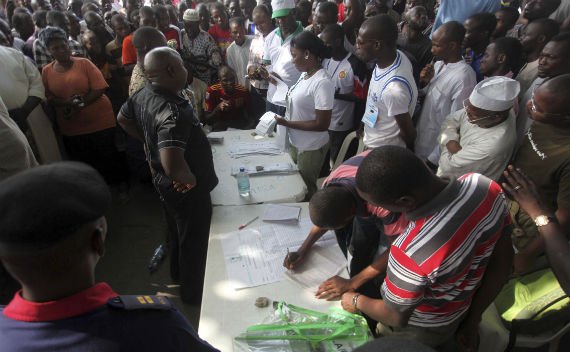There are no products in your shopping cart.
| 0 Items | £0.00 |


NIGERIA has added an extra 12.2m voters to its electoral roll following the end of the recent registration exercise conducted by the Independent National Electoral Commission (Inec) that saw numbers rise to 96.2m from 84m.
Next year, Nigeria goes to the polls and as part of the exercise, Inec has been conducting a continuous voter registration exercise that ended on Sunday. According to figures published by Inec, the northwest geo-political zone, made up of Sokoto, Zamfara, Kano, Kaduna, Katsina, Kebbi and Jigawa states, has the highest number of registered voters with a 22.67m in total.
In 2019 , the zone had 20.15m voters but the latest report released by Inec showed that 2.5m new voters were registered during the recent exercise, bringing the total number in the zone to 22.67m. In the southwest geo-political zone, which earlier had 16.29m registered voters in 2019, there are now has 18.3m registered voters.
In the south-south geo-political zone, made up of Akwa Ibom, Rivers, Cross River, Bayelsa, Edo and Delta states, the number of registered has risen from 12.8m to 15.2m. In the north central geo-political zone made up of Nasarawa, Kogi, Benue, Niger, Kwara and Plateau states, there are14.1m voters, while the northeast made up of Yobe, Borno, Taraba, Adamawa, Bauchi and Gombe states, added 1.5m new voters to reach 12.8m registered voters.
In the southeast, the smallest geopolitical zone made up of Ebonyi, Enugu, Abia, Anambra and Imo states, there are now 11.49m voters. In the Federal Capital Territory, the number of registered voters has increased to 1.5m from 1.3m, while Lagos maintained its position as the state with the highest number of registered voters, increasing its figure to 7.1m from 6.5m.
Kano State also maintained its second position, adding 569,103 new voters to increase its number to 6.02m. Kaduna State now has 4.4m registered voters while Rivers State has now overtaken Katsina as the fourth largest state in terms of voters with 3.68m voters, while Katsina has 3.57m voters.
Other states with a sizeable number of registered voters are Delta with 3.3m and Oyo with 3.3m, while Ekiti retained its position as the state with the lowest number of registered voters despite numbers rising to 1, 034, 911 from 909, 967 registered voters. According to Inec's report also showed that about 71% of the newly registered voters are youths.
Of the 12.2m newly registered voters, about 8.7m are between the ages of 18 and 34 while about 2.4m are between ages 35 and 49. Those between the ages of 50 and 69 are about 856,017 while about 127, 541 are over 70.
Political analyst Dr Busari Dauda, said the new composition of registered voters could determine the winner of the presidential election. He added that the composition of the new electoral register showed that Nigeria's youths were ready to stop recycling old leaders.
Dauda said: “It is not strange. I think we have people who have matured to 18 years and are ready to exercise their franchise. It portends a positive outcome for the country. It is also a signal that in the subsequent general elections, they would decide who they want as leaders in the country as well take over the affairs of the country at the national level and the recycling will stop and someone much younger will one day become the president."
Dare Atoye-Ariyo, the convener of the Coalition in Defence of Nigerian Democracy and Constitution, said the recently-concluded Osun State elections, which led to defeat of an incumbent governor, is evidence that youths are now transforming their online enthusiasm to votes. He added that the fact that the newly registered voters were mostly youths, signalled a reawakening.